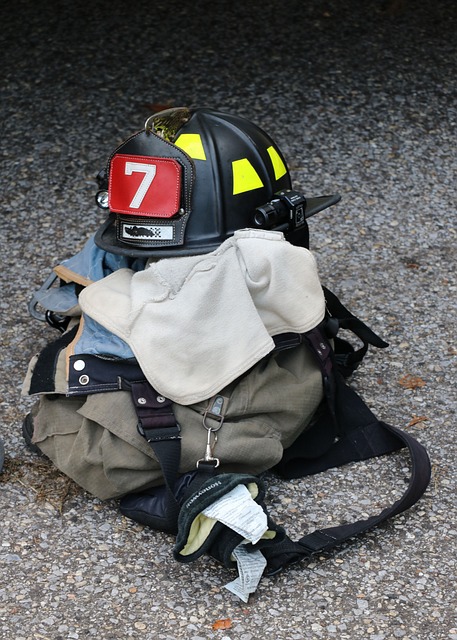Share This Article:

Bringing Gear Home Gives No Benefit to Employer, so Conn. Firefighter Loses Claim
31 May, 2023 Frank Ferreri

Waterbury, CT (WorkersCompensation.com) -- If a worker tries to shorten his commute by bringing necessary items for his job home with him, is that for his benefit or his employer's?
According to the court in White v. Waterbury Fire Department, No. AC 45589 (Conn. App. Ct. 04/11/23), a Connecticut worker who took work home and experienced an injury because of it was engaged in a "personal privilege" and did not meet the standard for compensability.
Agreed to Work OT
A firefighter was asked to work an overtime shift at a station that was different from his regular assignment. The firefighter agreed.
As he was leaving his usual station at the conclusion of his shift there prior to beginning his overtime shift, the firefighter gathered his turnout gear, placed it in a large duffel bag, and took it home with him. The gear included boots, pants, a coat, a helmet, and gloves, and the bag weighed about 50 pounds.
When the firefighter got home, he took the bag from his car to bring inside because: 1) it was "filthy," and he wanted to avoid the odor it would leave in the car; and 2) the gear was worth about $5,000, and he would be financially responsible for it if it were stolen.
While leaving his home to head in for the overtime shift, the firefighter fell down the stairs outside the entrance to his residence when his turnout gear bag he was carrying struck him after closing the door from his apartment, causing him to fall down his front stairs, injuring his right leg.
Workers' Comp 101: The "personal privilege" doctrine goes way back in Connecticut. For example, in Smith v. Seamless Rubber Co., 150 A. 110 (Conn. 1930), the state's top court detailed, "If the act being performed is for the exclusive benefit of the employee so that it is a personal privilege, or is one which the employer permits the employee to undertake for the benefit of some other person or for some cause apart from his own interests, an injury arising out of it will not be compensable."
The Proceedings
The firefighter sought workers' compensation benefits, and a commissioner denied his claim. According to the commissioner, the claim was not compensable because the reason the firefighter brought his gear home prior to working the overtime shift was to shorten his commute to work that night. Additionally, the commissioner noted that there was no evidence that the city received a benefit from the firefighter's decision to carry his gear home, nor was there evidence that the firefighter was directed by his superiors to bring the gear home.
The firefighter appealed to the board, which agreed with the commissioner, prompting the firefighter to appeal to court, arguing that his injuries arose out of an activity incidental to his employment that was for the mutual benefit of both parties.
In Connecticut, a personal injury does not arise out of employment if the injury is sustained:
(1) At the employee's place of abode, and
(2) while the employee is engaged in a preliminary act or acts in preparation for work unless such act or acts are undertaken at the express direction or request of the employer
The firefighter argued that the purpose of carrying the bag of turnout gear was "to appropriately and dutifully" perform his functions as a firefighter, so carrying the turnout gear at the time of his injury was for "the mutual benefit of himself and his employer."
The court disagreed.
“[T]he primary reason the [firefighter] brought his gear home prior to working the overtime shift ... was to shorten his commute to work that night," the court reasoned, highlighting the commissioner's opinion. "There was no evidence presented indicating that the [firefighter would] not be able to arrive for his overtime assignment on time had he driven to his normal firehouse and gathered his turnout gear before travelling to [the other station].”
As a result, the court upheld the previous rulings against the firefighter.
AI california case file caselaw case management case management focus claims compensability compliance compliance corner courts covid do you know the rule exclusive remedy florida glossary check Healthcare hr homeroom insurance insurers iowa kentucky leadership medical NCCI new jersey new york ohio pennsylvania roadmap Safety safety at work state info tech technology violence WDYT west virginia what do you think women's history women's history month workers' comp 101 workers' recovery Workplace Safety Workplace Violence
Read Also
- Dec 14, 2025
- Chris Parker
- Dec 14, 2025
- Frank Ferreri
About The Author
About The Author
-
Frank Ferreri
Frank Ferreri, M.A., J.D. covers workers' compensation legal issues. He has published books, articles, and other material on multiple areas of employment, insurance, and disability law. Frank received his master's degree from the University of South Florida and juris doctor from the University of Florida Levin College of Law. Frank encourages everyone to consider helping out the Kind Souls Foundation and Kids' Chance of America.
More by This Author
Read More
- Dec 14, 2025
- Chris Parker
- Dec 14, 2025
- Frank Ferreri
- Dec 14, 2025
- Claire Muselman
- Dec 13, 2025
- Chris Parker
- Dec 12, 2025
- Chris Parker




